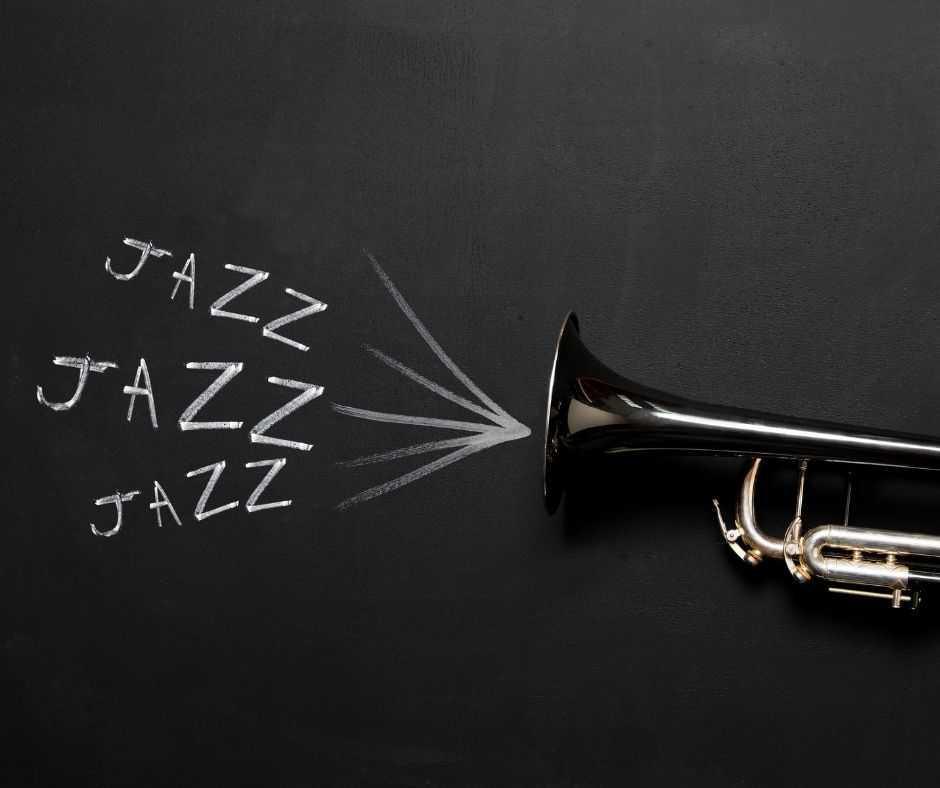If you’re a young brass player, you’ve probably had dreams of playing in a Big Five orchestra since you first learned that such a magical job existed. I’m not here to say that a dream job will never happen for you; we’ve all heard enough from the negative voices. Frankly, I’m a little more concerned with what you’re doing in the meantime to maximize your music-making. Now, not everyone has extra time in their practice routine to add an entirely new course of study, but before you trumpeters smash your faces on another run of the Petrushka ballerina, or you tuba players spend a futile half hour on the trill from Die Meistersinger, let’s consider what you can do for your classical playing if you spend that time studying Jazz theory instead.
Recent spring cleaning in my apartment uncovered an old notebook from my high school jazz lessons. What I saw in that notebook reminded me of why learning jazz was so vital to my growth as a classical musician. It was filled, page after page, with scales and arpeggios, in all keys and permutations. As children of classical music, many of us have trained those skills to death. You can do it again! Only this time your scales are Blues, Dorian, and Pentatonic, and your arpeggios now have extra notes like 7ths and 9ths.
That sounds easy, so what else is the same? If you grew up learning the circle of fourths and fifths, you might be glad to hear that you will spend many of your jazz practice hours mastering the ubiquitous ii – V – I chord progression. Understanding this basic jazz progression is hardly a stretch for those of you that stayed awake through Music Theory 101.
At this point, if you took my advice and spent your 30 minutes on jazz theory instead of Petrushka or Die Meistersinger, you would have easily covered every scale, every arpeggio, and the most common chord progressions from both excerpts in all 12 keys! Sure, Stravinsky’s progressions are implied, and Wagner’s ii – V – I isn’t exactly straight out of “I’ve Got Rhythm”, but you can’t appreciate those differences until you realize what’s the same.
And what of improvisation? How does one break down the seemingly impenetrable wall of absolute freedom? Your first step is easier said than done. Simply listen to recordings of jazz masters and copy what they do…note for note…by ear…no pencil and paper allowed. Welcome to the world of AURAL TRANSCRIPTION, perhaps the most important practice skill in all of music, and one that is nearly unknown to classical musicians.
Aural transcription is essentially karaoke with your instrument. You listen to a recording and mimic everything about it. In doing so, you internalize the style, inflections, and note choices of master musicians in a hands-on way. Through imitation, the pressure of creativity is stripped away and you instead experience the creative process through dissecting and reconstructing another artist’s work.
Speaking of karaoke, many of us know by heart the lyrics, rhythms, bass lines and harmonies of famous pop tunes. We’re even intimately familiar with songs we despise! And, we have built this extensive catalog of songs, idioms, tempos, and timbres in our brains. For what purpose? Why store gigabytes upon gigabytes worth of musical information in your brain if you are not going to access it in performance? If you feel like you spend your practice time straining your face more than training your ear, Aural Transcription will be what unlocks your brain as the prime mover in your practice sessions.
Would you like to be able to…
play back a melody you just heard?
harmonize on the fly?
improvise bass lines?
play a tune in all 12 keys?
be able to play someone else’s part by ear?
sit in with a band that doesn’t read sheet music?
say yes to more gigs?
These are all skills that are, by and large, unknown to classical brass players. We are not forced to learn these skills in school, yet they are fundamental in the music-making experience. Jazz is terrifying to many classical musicians because of the hurdle of improvisation. Yes, making up music on the fly is difficult, but improvisation is a musical skill that dates to the beginning of time—you owe it to yourself to be a more complete musician by giving it a try. Of course if you feel you’re doing fine and don’t need to advance your personal enrichment and development, at least do it for your wallet:
In the music recording industry “classical” music makes up less than 5% of sales. Don’t be shocked or saddened by that. Just take heart in the fact that expanding your musical horizons will only be a boon to your chances of success in the long run. You’ve already made the commitment to putting in your 10,000 hours on your instrument. All I ask is that you set aside a few of those hours for something different: something beyond the 5%.






